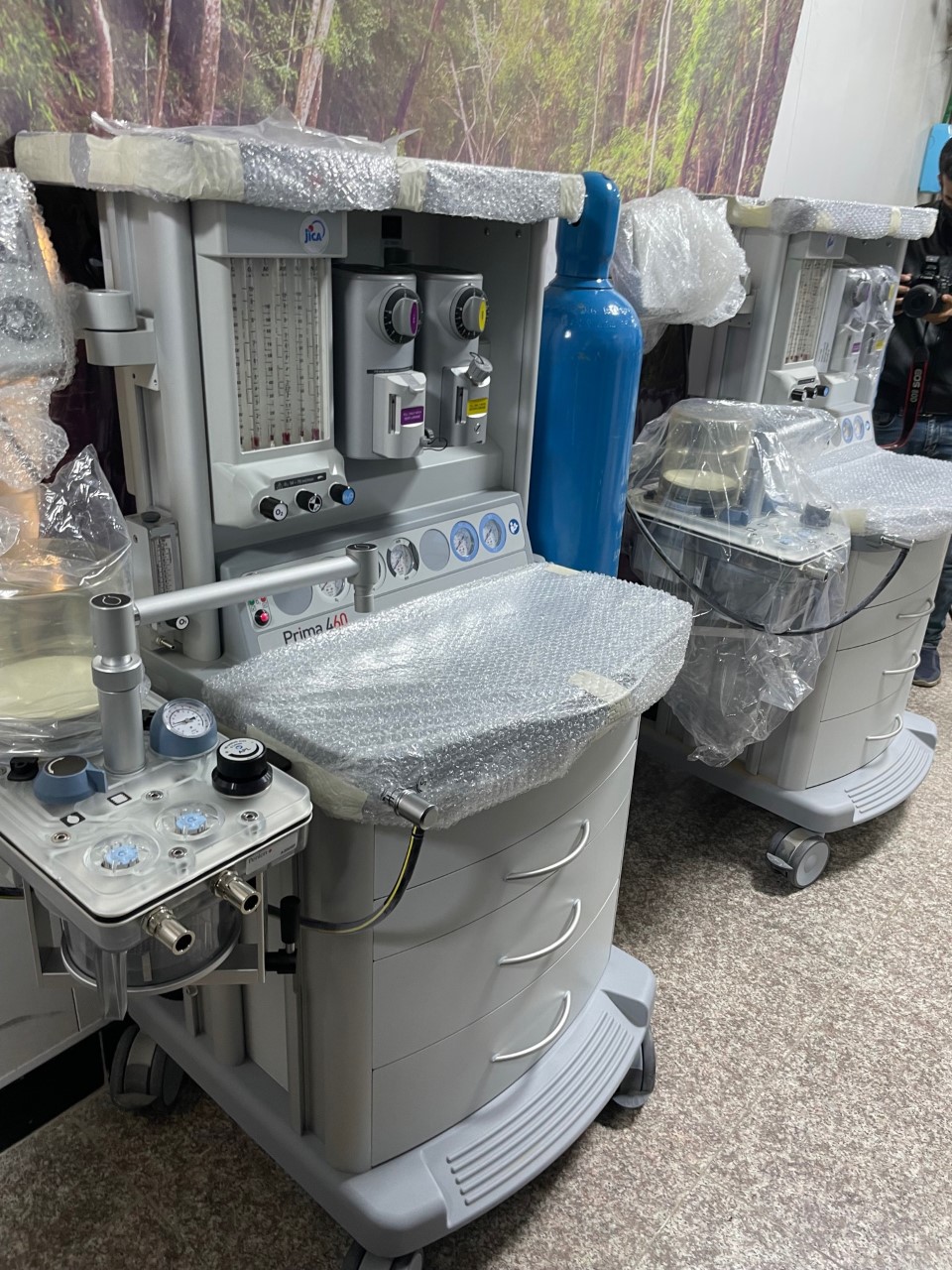 The new equipment is necessary to increase Al Shatra Hospital's capacity to boost infection prevention and controlBasra, Iraq, 22 December 2022 – The World Health Organization (WHO) and Japan International Cooperation Agency (JICA) have delivered essential medical equipment and supplies to Al-Shatra Hospital in Dhi Qar governorate in southern Iraq.
The new equipment is necessary to increase Al Shatra Hospital's capacity to boost infection prevention and controlBasra, Iraq, 22 December 2022 – The World Health Organization (WHO) and Japan International Cooperation Agency (JICA) have delivered essential medical equipment and supplies to Al-Shatra Hospital in Dhi Qar governorate in southern Iraq.
The new equipment is necessary to increase the hospital's capacity to boost infection prevention and control (IPC) and enable it to provide quality health care services and specialized interventions, including anaesthetic and intensive care services.
The delivery of the equipment is part of a 10-month project, valued at approximately US$ 700 000, aimed at enhancing a comprehensive IPC strategy to reduce avoidable morbidity and mortality of people in Iraq by curbing further transmission of COVID-19 and other diseases.
"Ensuring that the selected governorates have access to vital medical equipment is a top priority for WHO. These state-of-the-art equipment and supplies are indispensable and will enhance quality health care provision in these underserved areas," said Dr Ahmed Zouiten, WHO Representative in Iraq.
"We are demonstrating that by equipping health facilities and investing in health system strengthening, we can attain better health for all Iraqis and will get us closer to achieving universal health coverage."
Prior to the delivery of this shipment, WHO conducted several training workshops to train health workers and engineers on safe handling and managing the donated medical equipment, including oxygen cylinders, medical waste disposal machines and anaesthesia devices. In addition, WHO developed a training manual and IPC tools to be disseminated to other health facilities.
The project aims to benefit the southern governorates of Basra and Dhi Qar, which have faced health challenges due to high-burden diseases.
"This support provided by JICA enabled us to implement our infection prevention and control strategy in Iraq. TThe COVID-19 pandemic has shown that we cannot combat future outbreaks and health hazards unless we're armed with enhanced IPC measures, qualified health personnel and well-equipped health facilities."


